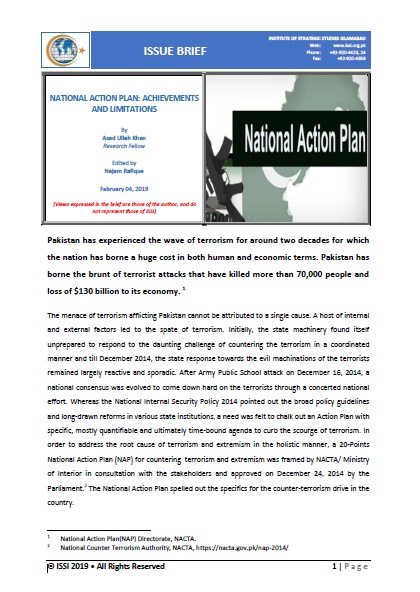Pakistan has experienced the wave of terrorism for around two decades for which the nation has borne a huge cost in both human and economic terms. Pakistan has borne the brunt of terrorist attacks that have killed more than 70,000 people and loss of $130 billion to its economy. [1]
The menace of terrorism afflicting Pakistan cannot be attributed to a single cause. A host of internal and external factors led to the spate of terrorism. Initially, the state machinery found itself unprepared to respond to the daunting challenge of countering the terrorism in a coordinated manner and till December 2014, the state response towards the evil machinations of the terrorists remained largely reactive and sporadic. After Army Public School attack on December 16, 2014, a national consensus was evolved to come down hard on the terrorists through a concerted national effort. Whereas the National Internal Security Policy 2014 pointed out the broad policy guidelines and long-drawn reforms in various state institutions, a need was felt to chalk out an Action Plan with specific, mostly quantifiable and ultimately time-bound agenda to curb the scourge of terrorism. In order to address the root cause of terrorism and extremism in the holistic manner, a 20-Points National Action Plan (NAP) for countering terrorism and extremism was framed by NACTA/ Ministry of Interior in consultation with the stakeholders and approved on December 24, 2014 by the Parliament.[2] The National Action Plan spelled out the specifics for the counter-terrorism drive in the country.















